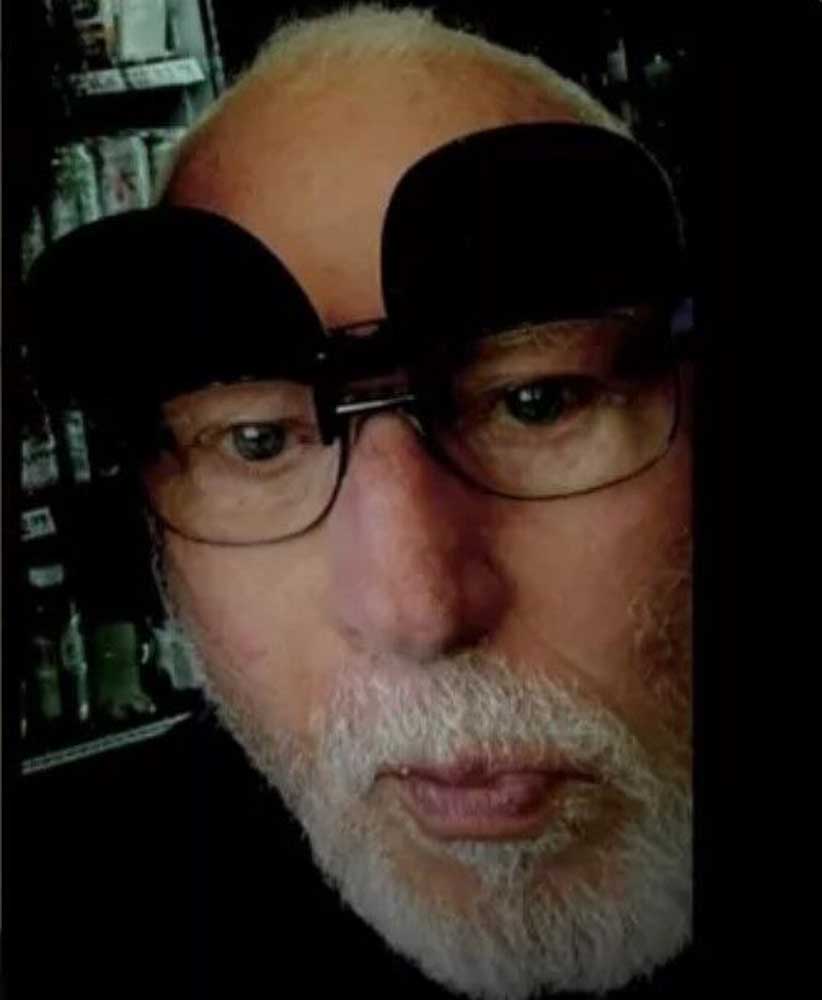Talking about the Safeway shooting helps former worker shed her pain
Published 5:00 am Sunday, January 22, 2023

- Glenn Bennett
Tears stream down her face whenever Sophia Aquarius talks about that horrible Sunday night in August.
Tears from the fear she still feels, five months after the violence at the east Bend Safeway, where she was an assistant manager.
Tears from a sense of the guilt that washes over her. She was working that night, stood right where a gunman would claim his first victim moments later.
She grieves for the loss of a friend and for a job with co-workers who felt like a family.
All of Bend knows what happened at 7:04 p.m. Aug. 28, when a gunman came into the east Bend Safeway and killed customer Glenn Bennett, 84, and employee Donald Surrett Jr., 66, before turning a shotgun on himself in the produce section of the store.
Most people have no real understanding of the emotional trauma the gunman inflicted on people like Aquarius. Haunted by the gunman’s actions, Aquarius said the only way she can shed that trauma is by talking about it.
But talking can trigger tears.
“When I heard that Glenn died, I had a lot of guilt that it should have been me,” Aquarius said recently. “I had been standing right where he was shot. I feel like my heart is broken.
“I had a strong connection to that store. I loved my job, and I loved the people I worked with.”
Weeks after the incident, even with a remodeled store, Aquarius couldn’t return to her job as assistant manager. So at 52, Aquarius started a new job at Newport Avenue Market at an entry level position, as a cashier.
The move has been helpful, to a point.
“Some days, I can be at work and hear sirens go by and I have to plug my ears and take deep breaths and think it’s OK,” Aquarius said. “I take a minute.
“Other times, it bothers me. Loud noises from just bringing in the carts sounds like gunfire hitting the glass.”
She hasn’t been inside the Safeway since she got her new job. She went once to the store and got as far as the parking lot.
Blank spots in her memory
Until she saw the five minute video that Bend Police put together and released in December, Aquarius had a lot of blank spots in her memory of the shooting. Her psychologist, Dr. Michael Conner, said after a traumatic event, the brain doesn’t always remember what it sees and experiences.
And those gaps create more trauma because victims fill in the blanks with what they imagine happened.
“They never feel safe until they know what actually happened,” Conner said. “It gives them a sense of closure. I wanted Sophia to see all the videos so she’s not guessing and filling in the gaps.”
Helped by weekly therapy sessions, Aquarius has been working through the trauma of having seen the gunman. She had run to the front of the store as the gunman fired shots from the parking lot by Big Lots at The Forum Shopping Center. Aquarius then grabbed a co-worker and they hid in the women’s restroom while frantically dialing 911.
Two weeks ago, Aquarius experienced a breakthrough through treatment called eye movement desensitization and reprocessing. It’s designed to alleviate the problems caused by traumatic and life threatening events and is often used in therapy to treat post traumatic stress disorder.
Before she received the series of eye movement desensitization reprocessing treatments, she felt like she was dragging around a weight of guilt that would cause her to erupt into tears that would not stop. Now she can control her sadness.
“The treatment helps you process the events without telling a story or talking about what happened. It doesn’t change anything around the fact of what happened,” Conner said. “It’s important that it doesn’t ruin her life. She has a lot of pain. She is still healing.”
After the therapy, Aquarius said she felt a calmness wash over her. She felt like she was breathing fresh spring air in a meadow.
The therapy works by processing the felt experiences, images, sounds and words and releasing the stress that the body generates by living, Conner said.
“We don’t really understand why it works,” Conner said. “We know it works. We understand why talking in words works but in this therapy, people process the felt sense and memories without words. By ridding the body of the felt feelings, you free them from the trauma.”
Counseling starts the healing
In the days following the shooting, Deschutes County health officials hosted counseling sessions. Mental health professionals from the community, including private psychologists like Conner, counseled workers and Bend residents who wanted to discuss their feelings and what they experienced.
“It was great and a good way to talk,” Aquarius said. “That’s where I initially met Dr. Conner.”
Aquarius said her family and friends quickly embraced her with support. Her brother flew in from Seattle and she and her co-workers grew closer as they shared where they were when the shooting started, where they hid and how they felt.
“That kind of talk helps people connect with each other, showing them that they were not alone. Everyone supports each other,” Conner said. “There’s no shame. People get to experience compassion and understanding.”
That sharing and compassion, Aquarius said, is the collateral beauty that comes about when people have a safe space to express themselves.
During this time, Aquarius said, there was a session at a nearby hotel when everyone jumped into the swimming pool with their clothes on. Even the store director, who was dressed in a suit, joined in.
“It was amazing,” Aquarius said. “It was a great moment.”
One particularly negative memory she can’t shake comes from an event just a few days before the store reopened, about a month after the shooting. Aquarius said she was called into a private meeting with two lawyers hired by Safeway. The lawyers made her talk about things she was not prepared to remember or know, said Aquarius.
Conner said this was a secondary trauma. The lawyers showed her pictures and grilled her about where she was, who she saw and what she said. (Safeway Stores did not return emails to The Bulletin for this story.)
‘We were family’
Before the store re-opened, Aquarius joined co-workers for a private visit inside to see where repairs had been made.
All the food had been replaced and the shelves restocked perfectly. The employee lockers were new, too. Even the pages in the employee handbooks were fresh and new.
Aquarius said the staff walked through the store together, holding hands.
At the produce section they stopped at the spot where Surrett, the produce manager, had died while trying to stop the shooter with his produce knife. Each of them quietly shared their memories of Surrett.
“I felt Don’s presence there,” Aquarius said. “We had a blessing to help all of us get through that moment. It was much needed.”
A soft-spoken woman, Aquarius forged connections at the east Bend Safeway.
For the nearly two years that Aquarius worked for Safeway, she and her co-workers spent happy moments in the break room, where they laughed, and shared homemade muffins and bread baked by Surrett’s wife.
They’d talk about house plants and the weather.
They all pitched in to stock shelves and help customers. Some customers came in every day. Some on their way to someplace else.
It was a good life, one that Aquarius said was rewarding financially and that suited her. Just four months on the job and Safeway had her in a future leader training program. That’s why the “incident,” as she calls the shooting, has been so difficult.
And it was especially difficult for Aquarius to learn of Surrett’s death, she said. At the start of her shift the day of the shooting, she had a plant she cultivated from her garden for Surrett to give to his wife as a thank you for the homemade baked goods.
“I hoped she’d like it,” Aquarius said. “It was the last time I talked to Don. We were friends. We were family.”
That destruction of that family feeling by the shooting is what sent Aquarius on a crying bender that lasted several days and prompted her to leave her management track job.
Now, Aquarius is building a new family at Newport Avenue Market. Co-workers will ask her throughout the day if she’s doing OK. Customers who knew her at Safeway will reach out to hug her when they recognize her. Aquarius stands out because she has brightly colored hair.
Others who have learned of her experience have reached out, too. So far no one has stopped and asked an intrusive or offensive comment.
“Just the other day, a shopper recognized me after I asked them if they needed help,” Aquarius said. “It was great to see them. People know me.”
Meeting well-wishing folks from her time at Safeway is heartwarming, but the trauma of the shooting keeps cropping up. After a decade in Bend, Aquarius, who lives with her son, needs to make changes. She’s planning on getting her own place and maybe starting a small business selling healthy tamales, to bring in additional cash to offset the lower income as a cashier.
But first, she wants to blanket the community that helped her with those tamales. She wants to thank the firefighters, the police officers and the health professionals at St. Charles Health System.
While talking sometimes puts Aquarius back in the front of the east Bend Safeway store at that exact moment when she saw the gunman heading toward it, she doesn’t want to carry the emotional burden of the trauma.
“People ask me all the time how I’m doing,” Aquarius said. “I am OK talking to people about it. It’s OK. I would rather people ask me about what happened.”
Physical signs of stress of trauma include:
• Hyper-vigilance
• Lack of sleep or too much sleep
• Withdrawing from social activities
• Pacing
• Feeling like you have to move quickly
• Not eating or overeating
Emotional signs of stress from a traumatic event:
• Anxiety
• Depression
• Feeling overwhelmed
• Shame and a lot of blame
• Nightmares
• Suspicion or intrusive thoughts
• Fatigue, nausea and headaches
To access mental health care with Deschutes County Health Department, call 541-322-7500 to schedule an initial appointment with the county Access Team. Services are offered in Bend, Redmond, and La Pine. Learn more about the Access Team and what to expect in your first appointment by clicking here or visiting: deschutes.org/health/page/behavioral-health
Source: Deschutes County Health Behavioral Health division






